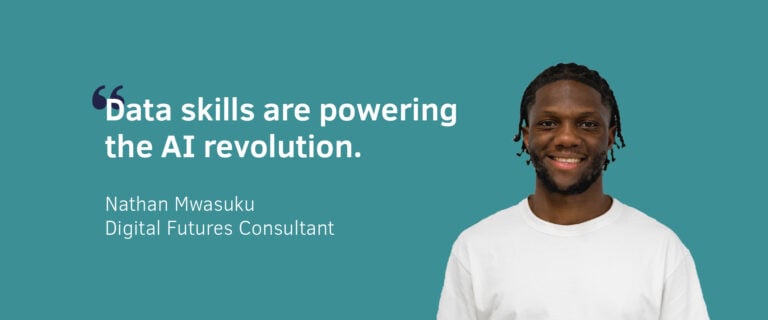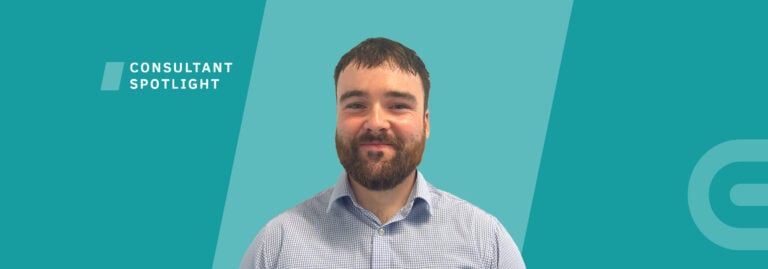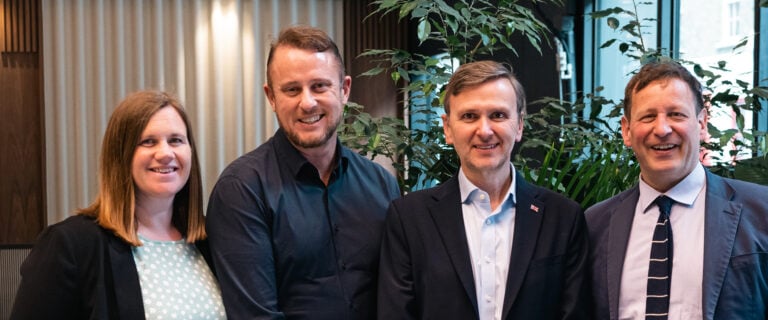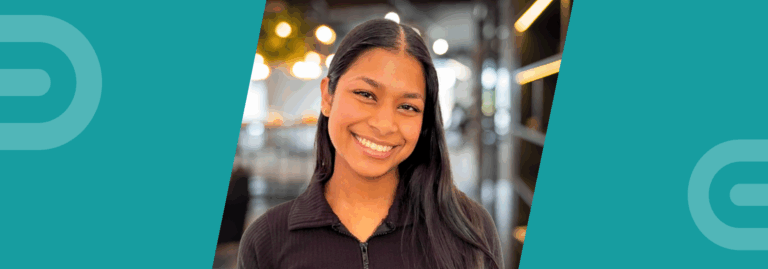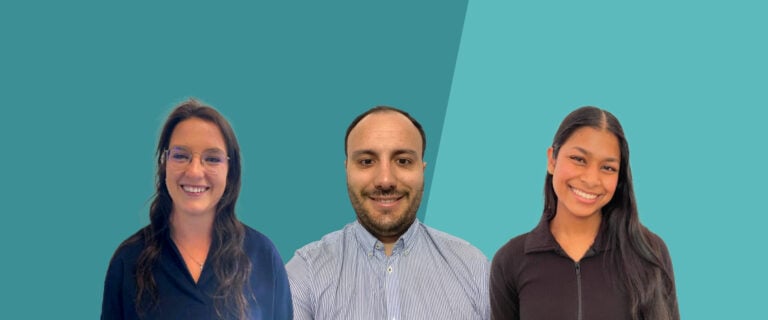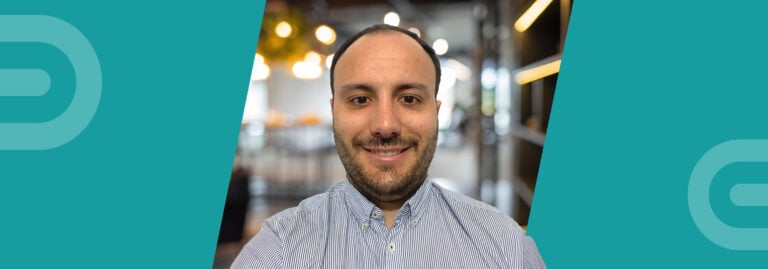We sat down with Akshaya Pradeep to talk about how she started her data engineering career with Digital Futures. Having successfully completed the Academy, Akshaya is now placed at a UK retail bank.
Tell us about your background – what was your journey before Digital Futures?
After my A- Levels, I went straight to university and I studied Biomedical Sciences at Leeds Beckett. I then went on to do a Masters at Manchester. When I came to the end of my degrees, I didn’t know what I wanted to do but I knew that I really wasn’t that interested in science anymore! When you do biomedical sciences, there are only really two routes to go down – the science/research side where you can go into a lab or you can choose to study further and go into the medical side of it. Did I want to spend another 10 years going into medicine? Not really.
I really enjoyed my undergrad, but I do really wish that I had gone into a data or technical field for my postgrad. I had considered data science but I’d just spent 4 years doing biomedical sciences and at the time, I didn’t want to throw all of that away!
When did you start to consider a tech or data engineering career?
It came about during my undergrad. My dad is a software engineer, and I always knew technology and data were an option for me. One of my friends was doing a bunch of online data courses and she really encouraged me to give it a go and have something that would look good on my CV. I did Python and SQL courses and I really enjoyed it so that’s where the interest really started for me.
What was the experience like when you were searching for a role?
It was a nightmare! Even for entry-level roles, they want you to have some experience. They say they’re open to everyone but there’s always an element of experience that’s needed and I just didn’t have the skills. I also wanted to stay in Leeds, so it was quite hard to find anything.
One of the other things that was challenging was that there were so many job titles that I didn’t understand and I wasn’t sure exactly what I wanted to do yet. At that point, all the data job titles sounded the same to me so I found it really difficult to know what to look for.
How did you come across Digital Futures and how was the application process?
I was looking through a bunch of grad schemes and training courses online. I did an interview a company similar to Digital Futures and their culture just didn’t really click with me. I tried to apply to a bunch of other coding bootcamps and I was either getting rejected or the fit just wasn’t right.
I found Digital Futures and was fully expecting to be rejected as well but I applied anyway! I thought I’d done really badly in the assessment and just accepted that was that on that application! I got to interview stage and was interviewed by Ryan, who was great. It didn’t feel like an interview because he was so relaxed. I was super nervous at the start but he really helped to calm me down.
What was the Academy experience like?
I had done a data project in my Masters so I had some experience on the data side of things which gave me confidence, but I knew the learning would be fast-paced. The cloud part of it was definitely the most difficult part. I’d never done any cloud before and some of the topics were hard to wrap your head around but Ryan taught it in a way that was simple and easy to understand. Even though I found it the hardest, studying for cloud was probably my favourite part. The challenge was enjoyable in a weird way! I also loved all of the SQL content.
What role are you working in now on client site?
I’m working in a data consulting role in a data management team at a retail bank. In terms of what I’m working on on a day-to-day basis, in a nutshell, our team has lots of financial and new business reports to deal with. Along with Adam, a fellow Digital Futures data engineering consultant, we are trying to get those reports into a dashboard version because the reports are quite old-fashioned and aren’t very interactive or easy to read. I’m learning about all of their systems and developing new skills like how to use PowerBI.
How did the Academy prepare you for your data engineering career?
We actually use a slightly different tech stack on client site to what we learned in Academy but the SQL knowledge that I gained has been really amazing. We are constantly learning new technologies, but the Academy prepared me from the standpoint that the learning experience is allowing me to pick up new technologies much more quickly than I would have without the Academy.
The Academy has really helped me build my confidence, improved my communication and developed my analytical thinking. The way I think about data and the way it can be used has completely transformed.
What stands out to you the most about your placement?
I have really enjoyed learning new things. PowerBI has been great to learn. I also love the people I’m working with. Sometimes I get a real hit of imposter syndrome, thinking “What am I doing here?” but everyone is so friendly and ready to help. The team on my placement is amazing. I feel super grateful to have found this placement and to have started my data engineering career. It can feel daunting – we had a meeting the other day with just so many people but it’s an incredibly positive place to be working.
What is it like for you being part of Digital Futures?
I love Digital Futures! I’m so comfortable around everyone. Ryan and Lisa have taught me so much; they always gave the extra time to help us. The instructors would always reply to my messages and calm me down and support me. They’re amazing and everyone is always there to help. The Delivery Management side of things has been really helpful; we’re really well connected with everyone placed at the same client. It’s great to hear what everyone is working on. If I have any issues I can air them or if I have any questions, Sydney is always there to answer.
Not on our email list? Sign up here to find out more about our latest news, updates and when applications are opening.
Read more about starting a data engineering career.
Read more about starting a data analytics career.

